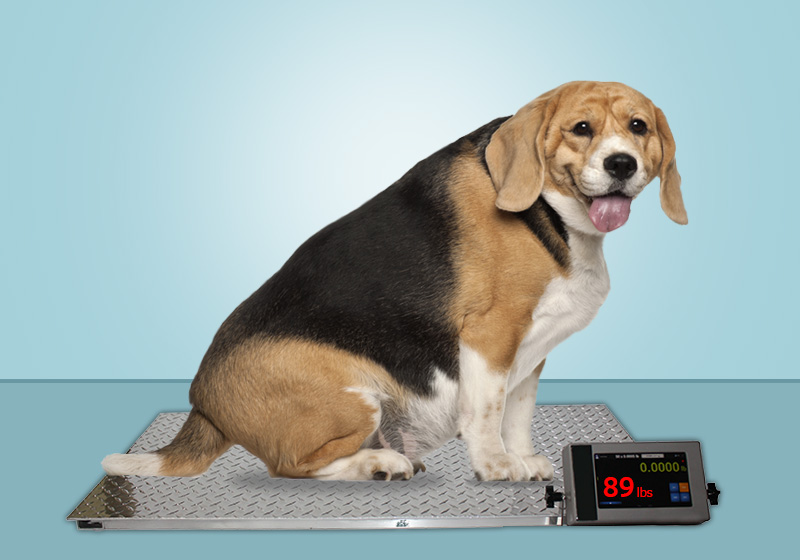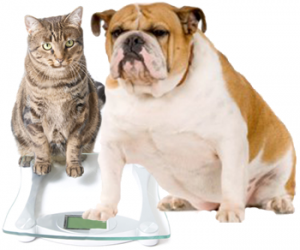
Saying to a dog-owner that their dog is obese or fat will definitely upset them. However, not all times the doggy is fat; it depends on various factors and even the breeds. You can reply positively to any comment if you know how to weigh a dog. It is quite an easy task to weigh your dog and let your friends know that he is not fat he is healthy and fit. You can do the following to know whether your dog is overweight or not.
1. Feel the ribs of the pet. If you are able to feel all the ribs individually, with a layer of fat, not too thick, then your pooch is completely fine.
2. Feel the area above the base of the tail, slight presence of layer of fat is good. But, not feeling any fat or feeling too much of fat both are not a good sign of health.
3. All the bony areas of the body like spinal cord should have a layer of fat on them.
These are some of the ways ensuring that your furry pal is fit and strong without any signs of bulkiness. If not so, then you must start with a weight control plan.
Weight control plan includes various aspects taken into account that acts as a factor for gain of weight. Some important tips are:

1. Proper diet management: Knowing what to feed your doggy is very essential. Like humans, the pattern is the same – east less, exercise more. Feeding quality food with all the necessary nutrients present in it that will ensure growth of the pet with strong immune system.
2. Measuring the food intake: Consult a vet regarding the proportion of food that should be fed to the dogs. Puppies need small portions of food while adult dogs require more quantity of food. Always remember to provide ample amount of water to the pets.
3. Routine Exercise: Exercise plays a vital role in weight control and weight reduction. Improving immunity and losing weight, both can be gained by exercising. Running, walking and playing various outdoor games like throw and catch; will burn few calories on a daily basis and keep the pooch fit.
4. Feeding supplements: There are several supplements, those rich in omega-3 fatty acids such as fish oil helps in managing the weight of the doggy and maintaining their shape.
5. Cutting off rich-in-calorie treats: Treats are an amazing way to teach your furry pal good manners as well as to realize them, they are behaving excellently. But, these treats sometimes can cause several weight issues as they contain more calories. Feeding the pets rich in nutrients and healthy treats is a better option.
Being over-weight even for dogs, is a serious issue. No one should take it lightly. Obesity or over-weights dogs undergo more health troubles than the dogs that are healthy and fit.
So, love your dog and pamper him but also take care of his health.!
